CoRWM: 18th annual report, 2021 to 2022
Published 6 January 2023
| Report Name: | CoRWM 18th Annual Report |
|---|---|
| CoRWM Document No: | 3832 |
| Issue date: | 2022 |
| Approved by: | Sir Nigel Thrift |
| Compiled by: | Mark Kirkbride |
Chair’s statement
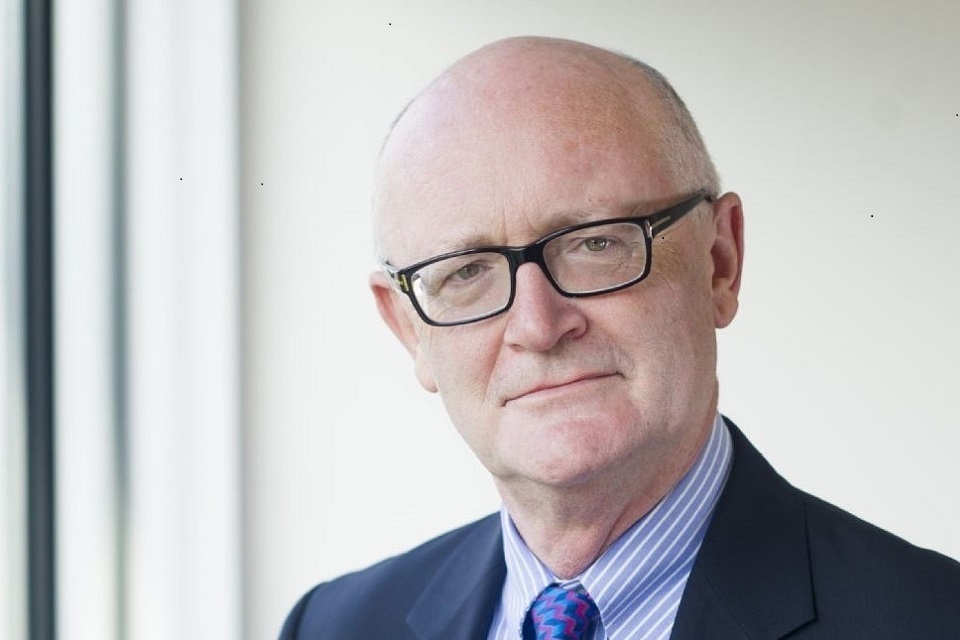
Sir Nigel Thrift
It is genuinely an honour to serve as the Chair of the Committee on Radioactive Waste Management (CoRWM).
The Committee has a long and extraordinary history of giving independent and impartial scientific and technical advice on the character and disposition of radioactive waste, advice which has had some notable impacts on government policy. For example, the search for a suitable location for a geological disposal facility (GDF) is now in full swing and 4 Community Partnerships have been set up. Geological disposal is a policy which was originally proposed by CoRWM.
Nearly every country with a nuclear industry realises that a body like CoRWM which dispenses independent advice to government on how to deal safely and securely with radioactive waste by using the most relevant contemporary scientific and technical thinking is a vital component of public trust. The Committee is essential in assuring the public that policy on managing radioactive waste is sound and will not be skewed by ideology or faction. I am proud to be a member of a committee which is such an indispensable public body.
Over the course of the last year, committee members have worked long and hard to advise the UK government and the devolved administrations on the development and implementation of radioactive waste policy and to both advise the Nuclear Decommissioning Authority (NDA) and Nuclear Waste Services (NWS)[footnote 1] and scrutinise their work as they take forward decommissioning. The Committee has also become involved in advising UK Atomic Energy Authority (UKAEA) and the Department for Business, Energy and Industrial Strategy (BEIS) on the management of any radioactive waste that may arise from fusion. We have also considered the implications for radioactive waste management arising from the UK government’s nuclear ambition in Energy Security Strategy.
Members have provided independent advice on various problematic issues, been prominent in a number of public forums, and taken the initiative where that seemed appropriate and our remit allows.
For example, this year, we have continued to provide scrutiny and advice to BEIS, the Welsh Government and NWS on activities related to the GDF siting process, including apposite ways of working with communities.
Equally, we have provided scrutiny and advice to BEIS and NDA on the storage of radioactive waste, spent fuel and nuclear materials that may be destined for disposal in a GDF, as well as topics such as GDF costs and the viability of an inshore GDF.
We have advised the Scottish Government and the Welsh Government on the management of radioactive waste.
We have regularly interacted with the UK’s environmental regulators and the Office for Nuclear Regulation as we worked up a position paper on regulation. Similarly, we have interacted with UKAEA as we worked up a preliminary position paper on managing radioactive waste from fusion.
Finally, as part of our remit, we have engaged in various outreach activities, including advice to communities, public talks, television, radio and podcast appearances, and a busy schedule of open plenary meetings featuring speakers talking on a wide range of different topics.
Chairing a committee like CoRWM means incurring debts of many kinds. In particular, I want to acknowledge the wise counsel of the 2 Deputy Chairs, Professor Penny Harvey and Derek Lacey.
I must also thank all of the other Committee members for their energy, enthusiasm, and genuine dedication which has reached over and above the call of duty on a regular basis. I would like to welcome the 3 new members of the Committee, Dr Clare Bond, Dr Catherine McKenzie and Mr Simon Webb, who I am already certain will provide advice and guidance of the very highest order.
One member of the Committee, Professor Neil Hyatt, left during the year. It is important to record his really outstanding contribution to the Committee’s work. We wish him only the best in his new position.
I should also thank the CoRWM Secretariat for their hard work and exceptional dedication over a year in which the COVID-19 pandemic partially interrupted the Committee’s normal ways of working. Even so, the Committee has still been able to make a variety of improvements which will facilitate its workings.
Particular thanks for these and many other developments should be extended to Mariana Ghosh who has been the Committee Secretary over the last 4 years. Her stewardship of the Committee has been exemplary and we wish her well in her new position as a Technical Operations Lead in the Office for Product Safety and Standards.
Let me end by restating my firm conviction that the Committee’s work is of genuine national importance for building and maintaining public trust in a clear and coherent strategy for radioactive waste through the provision of impartial scientific and technical advice which addresses each and every issue of substantive importance.
Sir Nigel Thrift
Chair, Committee on Radioactive Waste Management
Executive summary
This Annual Report covers the full range of CoRWM activities in 2021 to 2022 and the associated documents resulting from them.
Through numerous Committee meetings and events, we have interacted continuously with our sponsors, regulators and the public.
In all, we contributed 379 working days giving out advice to the UK government and the devolved administrations and scrutinising the activities of the Nuclear Decommissioning Authority (NDA) and Nuclear Wastes Services (NWS).
Our advice and counsel were sought on many different issues, far too many to list in detail here. However, the highlights included:
- advice to BEIS and the UKAEA on managing the radioactive waste from fusion
- advice, support and scrutiny of NDA and NWS on a range of issues including: community engagement; site evaluation; the storage of radioactive waste, the potential of near surface disposal of less hazardous intermediate level waste; GDF costs; an inshore GDF; materials not currently designated as waste; the safety case for a GDF; and forging a single radioactive waste strategy for the whole inventory with appropriate measures of progress
- advice and support to the Scottish and Welsh governments on a range of different issues
- fresh lines of work on the efficacy of an underground research laboratory and on the balance between geology and engineering in identifying a suitable location for a GDF
- preparation of new position papers for publication in 2022 to 2023
- visits to Culham Centre for Fusion Energy, Sellafield, Low-Level Waste Repository and National Nuclear Laboratory
Our work programme for 2022 to 2023 shows another year of concentrated activity ahead.
1. Introduction
1.1 This is the 18th Annual Report of the Committee on Radioactive Waste Management (CoRWM). It describes the Committee’s work in the financial year from April 2021 to March 2022 and outlines CoRWM’s current views on the status of UK government and devolved administrations’ plans and arrangements for the long-term management of radioactive wastes.
Scope of CoRWM’s work
1.2 CoRWM’s sponsors are the Department for Business, Energy and Industrial Strategy (BEIS) of the UK government, the Scottish Government, the Welsh Government and the Department of Agriculture, Environment and Rural Affairs (DAERA) in Northern Ireland. The Committee’s work programme for 2019 to 2022 was agreed with its sponsors and carried out within CoRWM’s agreed budget (Annex A).
1.3 The purpose of the Committee is to give independent advice, based upon its remit and utilising the skills and expertise of its members, and to provide informed scrutiny of the available evidence to UK government and devolved administration ministers on the management of radioactive waste, arising from civil and where relevant defence nuclear programmes, including storage and disposal.
1.4 CoRWM’s objectives are to provide independent scrutiny and evidence-based advice:
a. To ministers of the UK government and devolved administrations on NDA and NWS proposals, plans and programmes to deliver geological disposal, together with robust interim storage, for the UK’s higher activity radioactive waste, including materials not yet declared as waste. b. On other radioactive waste management issues as requested by sponsor ministers, including advice requested by the Scottish Government in relation to its policy for the management of radioactive wastes.
1.5 In addition, the Committee is also charged with community and public engagement on the issues within its remit.
1.6 The Committee was set up as a Non-Departmental Public Body (NDPB) so that it could retain the confidence of ministers and the public that its advice on radioactive waste is truly independent and always evidence-based. This status continues to be vital for its credibility.
1.7 CoRWM’s full terms of reference can be found on its website[footnote 2].
1.8 In fulfilling its remit to provide this independent and evidence-based advice, CoRWM is expected to maintain an overview of issues relevant to the delivery of UK government and devolved administrations’ radioactive waste management programmes. It should bring to the attention of sponsor ministers issues that it considers to be either: a) positive and worthy of note; or b) concerns that, in the Committee’s opinion, need to be addressed.
1.9 During its work in the past year, CoRWM has primarily engaged with officials within BEIS, Scottish Government, Welsh Government, the NDA and NWS. NWS, is the developer for geological disposal facility infrastructure. The Committee has also engaged with officials in DAERA in Northern Ireland and the nuclear safety, security, and environmental regulators.
CoRWM membership
1.10 Membership of the Committee consists of a Chair and 11 members.
1.11 One member has vacated the Committee this year and 3 new members have joined. The new members have already integrated exceptionally well. They are all proving to be a substantial asset, adding their talents to those of the existing members and producing a real and palpable hum of activity.
1.12 The appointment process has been triggered for a new member to replace the outgoing member, Professor Hyatt.
CoRWM’s outreach activities
1.13 The Committee remained committed to holding plenary meetings in public despite the challenges in the first part of the current year.
1.14 CoRWM held 4 plenary meetings in May, September, November and March of the Financial Year 2021 to 2022, with presentations given by Professor Penny Harvey, Professor Neil Hyatt, Michael Fairweather, and Martin Walkingshaw respectively, all of which were open to members of the public. The minutes are available at the link below[footnote 3].
1.15 During the year, members have presented at a large number of events run by other organisations, including NWS, New Scientist, International Atomic Energy Agency (IAEA), British Geological Survey and the Organisation for Economic Development’s Nuclear Energy Agency. CoRWM considers it important for the Committee to engage fully with a range of stakeholders to gain an understanding of their views and concerns on radioactive waste management in the UK and to present CoRWM’s conclusions on a number of issues.
1.16 Over the coming year the Committee intends to experiment with different kinds of events that it is hoped will engage the public more deeply in the work of the Committee.
1.17 Committee members have also made several television appearances and participated in numerous radio programmes and podcasts.
1.18 All of the 1,500 plus open documents which comprise CoRWM’s long history are now available on the National Archives website, named by document number. Also available on the website is a searchable Excel spreadsheet to make it easier to see what content is available and to find documents of interest.
1.19 The Secretariat has worked well this year and has proved vital to the Committee’s functioning.
Summary of year
1.20 In summary, in the financial year 2021 to 2022, CoRWM has provided advice and undertaken scrutiny in the following areas:
- advice to BEIS and NWS on the GDF siting issues arising from the Implementing Geological Disposal Policy, including Working with Communities, developer-led communications, public and stakeholder engagement, and the regulatory framework
- scrutiny of NDA’s and NWS’s activities relating to the management of higher activity waste (HAW) and materials not yet designated as waste, as well as the likely contribution of new nuclear, including small modular reactors (SMRs) and advanced modular reactors (AMRs) to the inventory
- advice to BEIS and NWS on the role of the safety case in the GDF siting process, especially in relation to the need for high-level descriptions of GDF designs and safety cases for the 3 appropriate geological settings namely: higher strength rock (such as granite), lower strength sedimentary rock (such as clay rocks) and evaporites (such as rocksalt)
- advice to UKAEA and BEIS on the possible wastes arising from fusion
- advice to the Welsh Government on the implementation of Welsh policy on geological disposal including community engagement, and scrutiny of the Welsh Government approach to the management of HAW
- advice to the Scottish Government on progress with its HAW Implementation Strategy
Progress on each of these areas is reported in later sections.
2. Delivery of 2021 to 2022 work programme
2.1 Communications and working with communities
Overall Task: Scrutiny of and advice to BEIS, Welsh Government, NDA and NWS on communication strategy and activities related to the implementation of Working with Communities policy, and related GDF engagement documents.
Task: To scrutinise and advise on the integrated communication strategy of BEIS, NDA and NWS
Subgroup 1 maintained regular contact with BEIS, NDA and NWS over the past year. We have followed public communications concerning the radioactive waste inventory and the relevant waste disposal facilities at a time of considerable organisational change. We remain attentive to how the radioactive waste inventory is discussed in relation to both the GDF and the potential for near surface disposal of less hazardous intermediate level radioactive waste.
The site visits to Sellafield and LLWR, participation in the NWS GDF stakeholder conference (December 2021), and in community engagement events with Allerdale and Copeland Working Groups (online) and Theddlethorpe Working Group (in person) have afforded us a good overview of the diverse aspects of public communications with respect to the Working with Communities policy and the implementation of geological disposal.
We have contributed suggestions to the potential refresh of the Nuclear Sector Deal and stressed the importance of ensuring the visibility of both civil society and the GDF programme in discussion of nuclear futures. With respect to the Fusion Green Paper, we noted the need to ensure that the differences and similarities between fission and fusion are clarified from a public perspective.
We attend the BEIS Non-Governmental Organisation (NGO) Forum as observers and report our observations to the Committee. We note that the joint chairing of the Forum (from BEIS and the NGOs) facilitates debate, as does the parallel ‘chat’ facility which is actively used for both comment and response in the online Teams meeting format. Concerns from the NGOs are primarily focused on waste from new build facilities, and interim storage prior to the availability of a GDF.
Task: To scrutinise implementation of the Working with Communities policies in England and Wales
Over the past year 3 Community Partnerships have formed in Allerdale, Copeland South, Mid Copeland and one Working Group in East Lincolnshire has now become a Community Partnership (June 2022).
We have held quarterly meetings with the Communications and Stakeholder relations team in NWS and have discussed the siting programme, local engagement activities, communications and media engagement both locally and nationally, and the importance of international comparison, and cross-sector comparisons.
In February 2022 we held a joint workshop with the NWS team to reflect on the communications and community engagement process. Ray Kemp presented an analysis of Principles for Community Engagement for discussion. Key issues that arose included: the complex lines of accountability that must be negotiated (with Treasury, Cabinet Office, Community Partnerships and BEIS); the need to build support and knowledge of the GDF programme across government departments; the complexity of the radioactive waste inventory for disposal; and the tensions between external expert-led and community/partnership-led approaches to the siting process. We stress that the building of relationships of trust over time is fundamental to the process.
Task: To act as a source of independent information to communities in the geological siting process if approached, and to ensure that the work of the Committee (including key position papers) is visible and accessible to communities
are aware of CoRWM’s work, the wide range of expertise of Committee members, and the rich archive of documentation on the website. We produced a short film that is housed on the CoRWM website and linked to the Working Group and Partnership websites. Blogs from site visits have also been posted on the CoRWM website. Working Group and Community Partnership members are informed of CoRWM Open Plenaries, which we have been able to host as hybrid on-line/in-person events over the past year. CoRWM was also highly visible at the NWS GDF Conference held in December 2021 - as Conference Chair (Neil Hyatt), Presenter and Panel Member (Penny Harvey) and invited attendees (Sir Nigel Thrift and Claire Corkhill).
Task: To report to the main CoRWM Committee to enable the development of advice to ministers, NDA and NWS
Subgroup 1 continues to lead on this task with close co-ordination with other sub-groups to ensure a consistent approach is taken by the Committee.
2.2 Site evaluation
Overall Task: Scrutiny of and advice to BEIS and NWS on the GDF siting process, including technical evaluation criteria & plans for site investigation and characterisation.
2A Scrutiny of and advice to NWS on technical site evaluation
Subgroup 2 held a series of meetings in 2021 and 2022 with NWS. A regular schedule of dates has been agreed throughout 2022 for update meetings with NWS in relation to the site evaluation process and working group developments, with specific focus topics raised by CoRWM during this period, as deemed appropriate.
2B Scrutiny and provision of advice to NWS on activities relating to the continued development of a GDF safety case
The subgroup has continued its monitoring of NWS activities including the R&D project on borehole sealing methodology which has been part of the watching brief by the subgroup.
2C Scrutiny and provision of advice to NWS on GDF siting activities, including selection criteria, methods of investigation, and the timescale for carrying out site selection in different rock types
The subgroup has been involved in various meetings and discussions in relation to the siting activities for the GDF, in particular the progress with Working Groups and Community Partnerships over 2021 and 2022 in Cumbria and Lincolnshire.
A series of areas of focus for discussion and advice in the last year have been in relation to the following:
- concept of an underground research laboratory (URL) as part of the technical evaluation for an operational GDF
- review and update CoRWM’s position on retrievability of parts of the radioactive waste inventory for disposal, including new build programme wastes and currently non-waste radioactive materials
- assessment of practical tunnel drivage distances using modern techniques (relevant to an inshore GDF)
- continuing to follow NDA’s exploration of near surface disposal for some intermediate level waste
Summary internal information notes and reviews have been prepared as part of the evaluation of these main topics. Subgroup 2 continue to review progress in relation to these topics and will consider position papers on these topics as this work matures.
Subgroup 2 prepared a GDF Costs Estimate Position Paper. It has been in final form and updated over the last 12 months to accommodate updated Inventory reporting. The paper provides a high-level overview of modern underground construction techniques and how these would translate to the construction costs and operational performance of a GDF.
Subgroup 2 has also started to consider in further detail the aspects of inventory which directly relate to the existing and future radioactive wastes to be disposed of within any GDF, exploration programmes for site evaluation and transportation of radioactive waste materials.
Subgroup 2 have completed a position paper in relation to the concept of an inshore GDF (meaning one accessed from onshore but located beneath the sea-bed). The subgroup reviewed the first draft of the Inshore Position Paper in March 2021 and have subsequently met and reviewed further iterations of the report. It is progressing to final form for issue in the next few months. CoRWM will set out key recommendations to be considered by BEIS, NDA and NWS.
2D Provision of Subgroup 2 related advice to working group stakeholders as required
Subgroup 2 remains available to engage with working groups and will continue to follow the developments in the year ahead from a technical delivery perspective.
2E Preparation of a paper reviewing CoRWM’s position on retrievability
Subgroup 2 has commenced the review and background preparatory work for a paper which will consider and update CoRWM’s position in relation to retrievability. Retrievability relates to the potential to recover waste packages from a GDF, at various stages during the lifespan of the GDF.
2.3 GDF process, policy implementation, planning and regulation
Overall Task: Scrutiny of and advice to BEIS and NWS on activities related to GDF licensing and the implementation of the Geological Disposal programme.
During the past year Subgroup 3 essentially followed through on the issues set out in the March 2021 CoRWM Position Paper ‘Policy, Legal and Regulatory Issues for a GDF’.
Engagement with regulators
In May 2021 a wide-ranging discussion was held with the head of advanced nuclear technologies and strategic workforce planning, and colleagues at the Environment Agency (EA). Discussions included near surface disposal for less hazardous intermediate level waste; the concept of an ‘Inshore GDF’ in relation to groundwater protection and transboundary issues; and the developing interest in nuclear fusion and other advanced nuclear technologies.
Regarding near surface disposal, the EA emphasised the need for balancing radiological and non-radiological hazards when assessing the risks of proposed disposal methods for parts of the radioactive waste inventory.
Regarding an inshore GDF, it was apparent that while the EA have regulatory powers within territorial waters, some definitions such as groundwater may differ sub seabed, and that the Marine Management Organisation (MMO) would almost certainly be involved.
Regarding new nuclear technologies, members of the subgroup subsequently contributed to CoRWM’s detailed response to the BEIS green paper on the regulatory framework for fusion energy.
Engagement with the NDA and NWS
Discussions were held with the NDA and with NWS on several matters relating to planning and regulation for a GDF and the planning and regulatory regimes for near surface disposal, if this were to be taken forward.
Regarding the concept of near surface disposal members were keen to understand how the definition of ‘bulk quantities’ of radioactive material proposed by the Office for Nuclear Regulation (ONR) would be applied as part of determining what inventory might be suitable for near surface disposal. Members welcomed the clarifications provided and will continue to engage with the both the NDA and NWS regarding the licensing and permitting implications of both a GDF and near surface disposal of less hazardous intermediate level radioactive waste (if taken forward).
Planning and policy matters
Regarding an inshore GDF and a GDF more generally, a detailed exchange of information on regulatory implications was also held with the Operations Lead and colleagues at the Planning Inspectorate (PINS). The focus centred upon the Development Consent Order (DCO) process for Nationally Significant Infrastructure projects. It was noted that the DCO process is a 6-stage process, with the longest stage being the pre-application stage where interactions with the developers begin, and in which discussions are about the environmental impact assessment, screening, scoping and advice on how to go through consultations surrounding their project.
Members of PINS emphasised the importance of an upfront national policy statement which is a key part of the Planning Act, with the policy being settled nationally. It is clear that the examination process should not and cannot reopen the policy position on deep geological disposal for HAW.
While a meaningful pre-application stage for a GDF will not occur for some considerable time, Subgroup 3 members were keen to explore how the DCO process will apply to early investigatory work.
Addressing uncertainties
Following these various discussions, Subgroup 3 members met to sketch out some of the uncertainties that appeared to arise from a planning and regulation perspective. The linkages were explored between core themes, parameters and required outcomes such as the radioactive waste inventory, defining bulk quantities of radioactive matter near surface disposal, and the potential need for an underground research laboratory. This prompted a recognition of the benefit of stepping back and seeing these developments in context, and in understanding the links between them, and between policy, strategy, regulation and delivery. It was felt this ‘overview’ deserved wider discussion across CoRWM particularly as new members are joining the Committee.
Summary
Regulation is an important component of several other work streams of CoRWM and Subgroup 3 members have participated with members of other subgroups in work on near surface disposal, an inshore GDF and community engagement.
Key outputs this year have been taking the lead on or contributing significantly to the following:
- CoRWM’s Report ‘Implications of an Inshore GDF’
- CoRWM’s Response to the BEIS green paper on the future of fusion energy regulation
- CoRWM’s advice to BEIS and the devolved administrations on work to consolidate and amend policy on managing radioactive substances and nuclear decommissioning
- overview of radioactive waste management themes, parameters and outcomes
2.4 Scottish Government activities
Overall Task: Scrutiny of and advice to the Scottish Government (SG) on the management of radioactive waste in Scotland.
A new chair for Subgroup 4 was appointed in early 2022, followed by engagement with the Scottish Government Radioactive Waste Management Policy team who are progressing the Scottish HAW Policy Review.
Subgroup 4 attended the 23rd Scottish Nuclear Sites Stakeholder Meeting in January 2022, giving a CoRWM update and listening to stakeholder reports and concerns.
2.5 Welsh Government activities
Overall Task: Monitor Welsh Government (WG) activities.
All meetings have been held virtually this year.
Subgroup 5 met with representatives of the Welsh Government (WG) on 3 occasions this year – on 11 November 2021, 14 November 2021 and 18 February 2021.
Updates have been provided by Welsh Government officials on the progress of policies that will replace regulation previously covered under the Euratom treaty.
Subgroup 5 has provided updates to the Welsh Government on the progress of various CoRWM position papers being produced by other subgroups.
2.6 Storage of waste, spent fuel and nuclear materials
Overall Task: Scrutiny of and advice to BEIS and NDA on the management of radioactive waste, spent fuel and nuclear materials that may be destined for disposal.
Task 1 Ongoing scrutiny of end of the Magnox reprocessing programme, and of storage and potential disposal of spent fuel, uranics and plutonium
CoRWM has maintained a watching brief on the end of the Magnox reprocessing programme. During this period Sellafield Ltd continued to reprocess Magnox fuel. At the same time NDA and Sellafield Ltd continued to develop options for management of the fuel that would remain following the anticipated closure of the reprocessing plant in 2022. CoRWM will complete its consideration of the implications of end of the reprocessing programme for waste management and disposal during the 2022 to 2023 period.
Subgroup 6 engaged regularly with NDA on storage and potential disposal of spent fuel, uranics and plutonium. During the year progress has been made on a study on disposal of uranics. Information has been gathered on the inventory, on the options for reuse, management and disposal and on the safety case for disposal. Initial discussions have been held with NDA, NWS and Urenco. This work will continue during 2022 to 2023 with a view to producing a report containing CoRWM advice.
Task 2 Monitoring and providing advice on NDA Integrated waste management developments including boundary, difficult wastes in Scotland and strategic direction
Subgroup 6 engaged regularly with NDA on integrated waste management (IWM).
CoRWM has maintained an interest in NDA’s exploration of near surface disposal concepts for less hazardous intermediate level radioactive waste. CoRWM recognises the potential benefits that might be realised by adoption of this additional waste management option and that NDA has made progress in understanding the potential for development of at-surface and at-depth near surface disposal concepts. CoRWM understands that policy development is necessary for this option and believes that stakeholder engagement is essential if the option is to be publicly acceptable.
Emergent task on implications for decommissioning, radioactive waste management, and radioactive waste disposal associated with fusion energy
During the year BEIS sought CoRWM advice in relation to its fusion strategy. This resulted in the publication of a Preliminary Position Paper on Radioactive Wastes from Fusion Energy in which CoRWM noted the need to ascertain the extent to which radioactive wastes arising from future fusion systems can be confidently expected to meet low level waste criteria at 100 years after end of life, and to understand whether any intermediate level waste from fusion can be managed in near surface disposal facilities. In addition, subgroup 6 led CoRWM’s response to the BEIS green paper on the regulatory framework for fusion energy.
2.7 Position papers and reports
The position papers issued to date by CoRWM are set out in table 1 below.
Table 1: CoRWM position papers and reports
| Name | Content | Date updated |
|---|---|---|
| Radioactive wastes from fusion energy | CoRWM’s preliminary position on the implications for decommissioning, radioactive waste management, and radioactive waste disposal associated with fusion energy. | 6 December 2021 |
| Policy, legal and regulatory issues for a geological disposal facility (GDF) and associated radioactive waste management issues | CoRWM’s position on policy, legal and regulatory issues for a GDF and associated radioactive waste management. | 10 May 2021 |
| Deep borehole disposal | CoRWM’s position on the potential use of deep boreholes for the disposal of solid radioactive waste | 8 August 2019 |
| Geological Disposal Facility site evaluation | CoRWM’s response to Radioactive Waste Management’s consultation on site evaluation | 4 June 2019 |
| Euratom and the dimensions of interest to Scotland upon the UK’s withdrawal from the EU | CoRWM advice on waste management issues likely to face the Scottish Government following exit from the Euratom Treaty | 26 February 2019 |
| Why geological disposal? | CoRWM’s position on why geological disposal is the best option for disposal of higher activity radioactive waste | 25 January 2019 |
| Retrievability considerations for geological disposal | CoRWM’s position on retrievability considerations for geological disposal of radioactive waste | 25 January 2019 |
| Geological disposal of radioactive waste - safety requirements | CoRWM’s position on safety concerns regarding a Geological Disposal Facility (GDF) | 7 November 2018 |
| Transport considerations for radioactive materials | CoRWM’s position on the safety, security and environmental protection aspects of the transport of radioactive materials | 7 November 2018 |
| Selecting a geological disposal facility (GDF) site based on the best geology | CoRWM’s position on selecting a site based on the ‘best geology’ for a geological disposal facility | 7 November 2018 |
| Radioactive waste: support for disposal rather than indefinite storage | CoRWM position on the indefinite storage of radioactive waste | 7 November 2018 |
| Statement on geological disposal | CoRWM’s recommendations on geological waste disposal | 25 July 2013 (First published during the 2010 to 2015 Conservative and Liberal Democrat coalition government) |
3. Forward look
3.1 The Committee’s focus for 2022 to 2023 has shifted to the actual mechanics of the delivery of geological disposal, and especially providing scrutiny and constructive feedback on NWS’s roll-out of the GDF siting and engagement process.
3.2 Particular note is being taken of site evaluation, site selection and early-stage, non-invasive geological studies, and, of course, community engagement.
3.3 The Committee will also work with NDA to better understand the how waste at the boundaries of intermediate and low level activity classification may be managed more effectively to contribute to a more effective assignment of waste streams to appropriate disposal paths and programmes, possibly including near surface disposal for specific wastes. It will also continue to work with NDA on issues connected with materials not currently designated as waste.
3.4 The Committee will keep abreast of, and advise on, the efficacy of new technological developments such as horizontal borehole technology, new mining methods applicable to the construction of a GDF, including the inshore variety, materials not classified as waste, and the nature and extent of waste arising from fusion. It will also consider the role of technological innovation more widely.
3.5 More generally, the Committee will continue to provide advice to BEIS and the Scottish and Welsh governments and liaise with the DAERA in Northern Ireland on numerous aspects of radioactive waste policy and its implementation.
3.6 The Committee will continue to remain current with respect to the UK nuclear industry. It has restarted a programme of site visits in the UK and overseas so as to observe and report on a range of different activities.
3.7 The Committee will publish 3 position papers on the costs of a GDF, an inshore GDF and the radioactive waste inventory.
4. Conclusions and recommendations
4.1 The Committee continues to hold to its conclusion, as found in the 2006 assessment, that deep geological disposal is by far the best long-term solution for safely dealing with the inventory of higher activity radioactive waste. It cannot currently foresee a scenario in which a GDF would not be a key part of any solution. A GDF must form a vital part of the management of the radioactive waste legacy.
4.2 The Committee has amassed an enormous fund of expertise and experience on the whole range of radioactive waste management concerns over many years now. As a result, we believe that the Committee has played a pivotal role not only in the development of the GDF but of radioactive waste management policy and strategy more generally, not least because its advice is demonstrably independent and therefore provides the public with reassurance and inspires trust.
4.3 CoRWM is uniquely placed to give expert and independent advice and scrutiny on all parts of the radioactive waste management regime. In so doing, it provides an essential and objective counterbalance to the influence of organisations having a direct interest in particular outcomes. That is why the Committee’s existence as a public body and its independent evidenced-based advice are so important.
4.4 2021 to 2022 was a year full of positive activity and outcomes and there is every expectation that 2022 to 2023 will present similar demands and yield substantial results.
4.5 The integration of the 3 new Committee members has proceeded apace, and the Committee has shown an exceptionally strong level of energy and commitment providing advice and scrutiny on the management of radioactive waste.
4.6 It remains the intention of CoRWM to produce and publish position papers on a range of relevant topics over the coming year, including on GDF costs, an inshore GDF and the radioactive waste inventory.
4.7 The attention that the NDA is giving to considering alternative means of disposal for some portions of the waste inventory, plus the continuing review of the Nuclear Decommissioning and Radioactive Substances Policy and the new Energy Security Policy, provide further specific opportunities for engagement and advice.
4.8 Additionally, we continue to pursue strong connectivity between the main policy initiatives above and Scottish Government’s review of its 2016 Higher Activity Waste Implementation Strategy.
4.9 The Committee has made a series of successful attempts to build on and further strengthen its links with the various regulatory organisations and these will continue.
4.10 During the past year, CoRWM had to put some of its outreach activities in abeyance, although many have still been able to go ahead successfully using teleconference facilities. In the year ahead, we will hold more face-to-face meetings.
4.11 The transformation of RWM into an organisation that is part of the new NWS division of the NDA, focusing on delivery preparations, programme management, capability building and community engagement appears to provide excellent opportunities for continuation and deepening of partnership working, ensuring that CoRWM is constructively and closely engaged in providing scrutiny and advice on further programme development as progress is made towards identifying suitable locations for a GDF.
4.12 We therefore look forward to another year of progress.
5. References
Annex A: CoRWM expenditure 2021 to 2022
CoRWM’s budget and actual expenditure for the year is set out in table 2, split into the main spending areas.
The budget for 2021 to 2022 was set at £200k because of the reduced number of members at that time and travel issues associated with COVID-19 (the 2020 to 2021 budget was £320k).
Table 2: CoRWM’s Budget Out-Turn 2021 to 2022
Total Budget (£k): 200.00
| Budget Items | Actual (£k) |
|---|---|
| Members’ fees1 | 132.06 |
| Members’ expenses2 Incidental expenses3 Recruitment and secretariat administration |
13.74 |
| Total | 145.80 |
Notes:
1. Members’ fees include Employer National Insurance Contributions.
2. Members’ expenses include transport costs and incidental expenses when travelling to meetings, visits or other venues.
3. Meetings and visits include venue and members’ accommodation costs for Plenary Meeting, visits and other meetings.
The standard fees are those paid at the rates specified in Members’ terms of appointment. These state that:
- the Chair can claim £450 a day for up to 78 days per year
- the Deputy Chair can claim £380 for up to 49 days per year
- members can each claim £350 a day for up to 49 day in a year
CoRWM is not required to report the fees that individual members received, but this information is published in the interests of transparency, with table 3 summarising the days worked by each of the CoRWM members in the year period.
Table 3: Days Worked by CoRWM Members
| Name | Days Worked | Status |
|---|---|---|
| Sir Nigel Thrift | 51.69 | Chair since July 2018 |
| Penny Harvey | 38.66 | Member from Nov 2019, Deputy Chair |
| Derek Lacey | 48.48 | Member from Nov 2019, Deputy Chair |
| Stephen Tromans | 35.50 | Member since Nov 2018 |
| Neil Hyatt | 44.87 | Member from Nov 2019 |
| Ray Kemp | 48.00 | Member from Nov 2019 |
| Mark Kirkbride | 47.20 | Member from Nov 2019 |
| Gerry Thomas | 16.40 | Member from Nov 2019 |
| Claire Corkhill | 45.07 | Member from Jan 2020 |
| Clare Bond | 2.00 | Member from Jan 2022 |
| Simon Webb | 1.125 | Member from Jan 2022 |
| Catherine Mackenzie | 0.00 | Member from Jan 2022 |
| Total | 378.995 |
Annex B: CoRWM membership
Sir Nigel Thrift, Chair

Sir Nigel Thrift
Sir Nigel Thrift was appointed Chair of the Committee on Radioactive Waste Management on 2 July 2018.
Until 2017, Sir Nigel was the Executive Director of Schwarzman Scholars.
Sir Nigel previously served as Vice-Chancellor and President of the University of Warwick and as Pro-Vice-Chancellor for Research at the University of Oxford.
He is one of the world’s leading human geographers and social scientists. He is a Fellow of the British Academy and a Visiting Professor at Oxford University and Tsinghua University. He is a Deputy Lord Lieutenant of the West Midlands.
Current term of office ends: July 2026
Penny Harvey, Deputy Chair
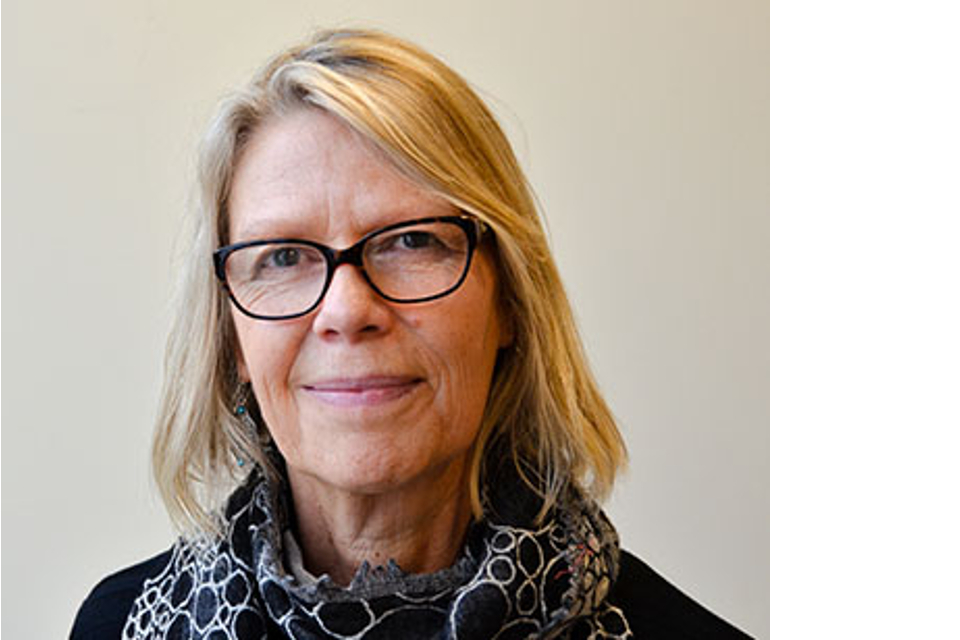
Penny Harvey
Penny Harvey is Professor of Social Anthropology at the University of Manchester.
Penny has an extensive history of research on the social transformations of large-scale infrastructure projects, with a particular focus on the relationship between local communities, government agencies and corporate bodies.
She is a Fellow of the Academy of Social Sciences (UK), and an elected member of the Norwegian Academy of Science and Letters.
Current term of office ends: November 2023
Derek Lacey, Deputy Chair
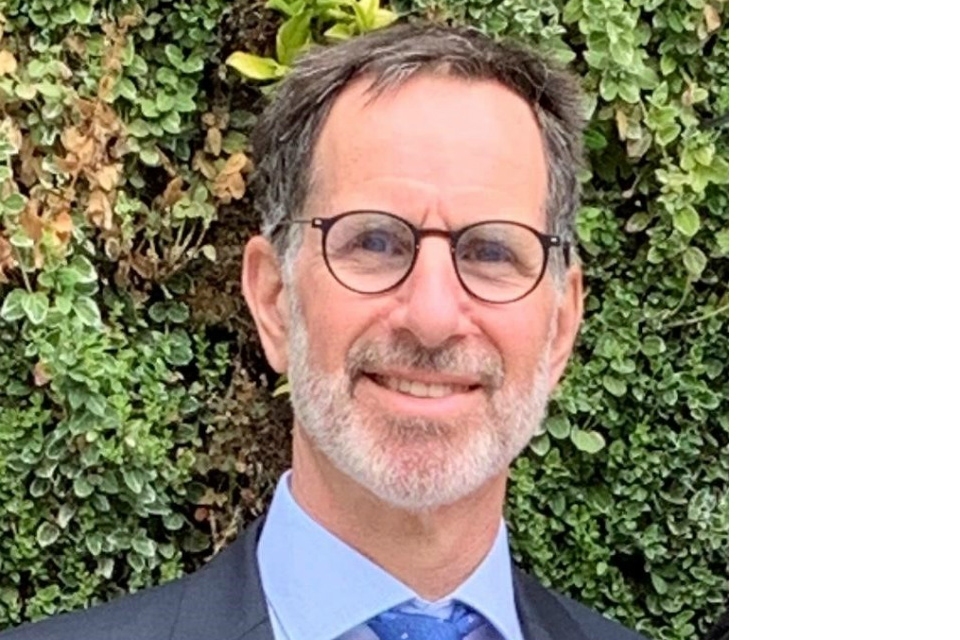
Derek Lacey
Derek is a mechanical engineer with nearly forty years’ experience of public service related to nuclear technology.
He was a Director at the International Atomic Energy Agency from 2014 to 2019 and previously held senior roles as Deputy Chief Inspector in the Office for Nuclear Regulation (ONR) and Head of Nuclear and Radioactive Waste Management Policy at the UK Department for Energy and Climate Change.
Current term of office ends: November 2023
Claire Corkhill, Member
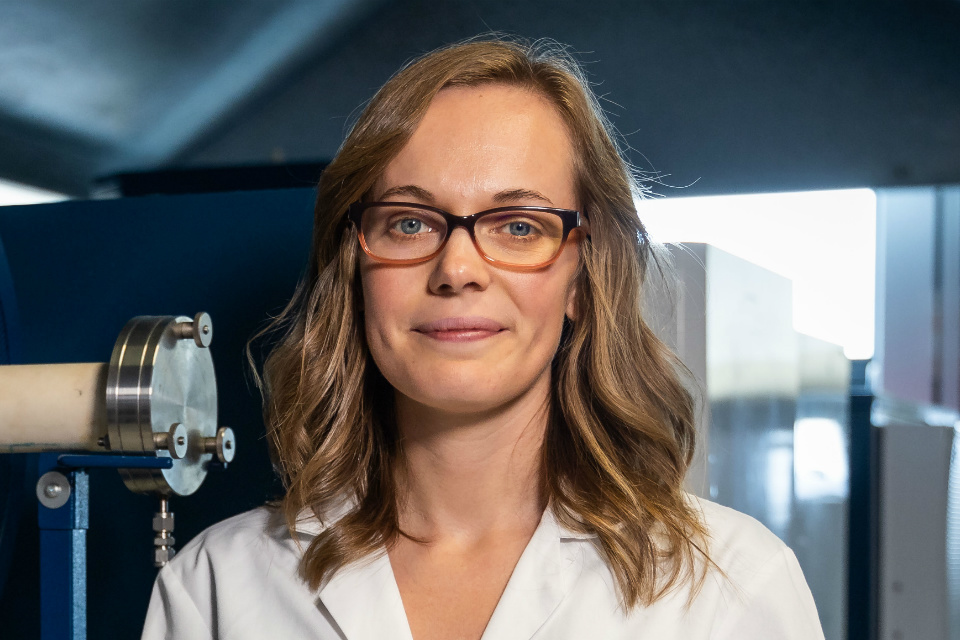
Claire Corkhill
Claire Corkhill is currently a Reader and EPSRC Early Career Research Fellow at the University of Sheffield.
With an academic background in both geology and materials science, she has over 10 years of experience in researching nuclear waste material corrosion in geological environments. She has held research fellowships in both the UK and Japan and leads a team of 12 researchers focused on determining the long-term behaviour of radioactive materials.
Claire is an enthusiastic science communicator and has made numerous media appearances in relation to nuclear waste disposal and nuclear decommissioning.
Current term of office ends: January 2024
Neil Hyatt, Member
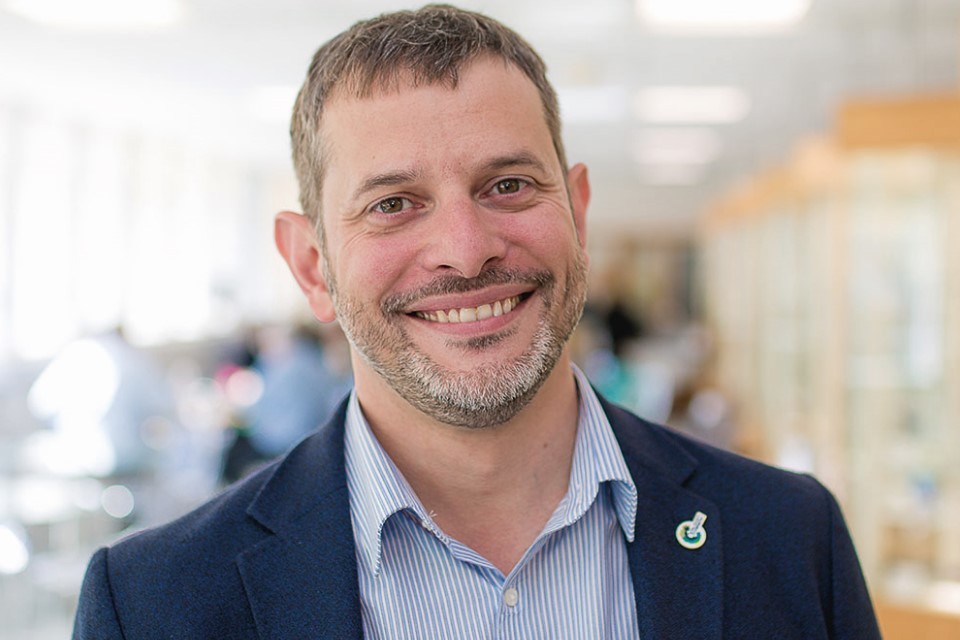
Neil Hyatt
Neil Hyatt is a Professor of Nuclear Materials Chemistry at the University of Sheffield and Head of Department of Materials Science & Engineering at the University of Sheffield.
Neil has more than 15 years of professional and academic research in radioactive waste management and disposal.
Neil was made a Fellow of the Royal Society of Chemistry in 2015.
Current term of office ends: Resigned January 2022
Ray Kemp, Member
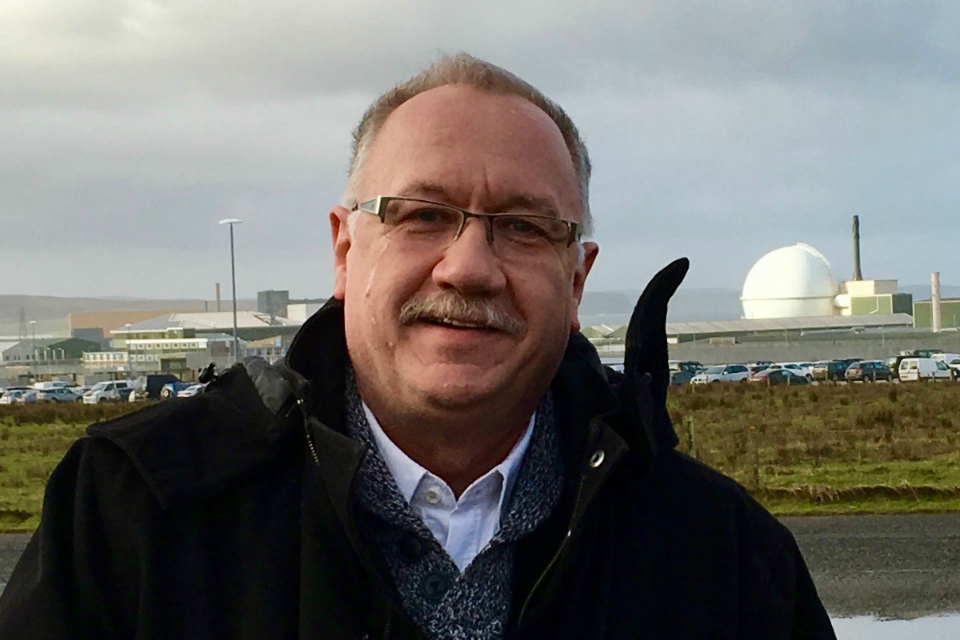
Ray Kemp
Ray Kemp has been a Member of the Advisory Committee on Carcinogenicity of Chemicals in Foods, Consumer Products and the Environment (COC) Public Interest Representative at the UK Department of Health and Social Care from 2013.
In the past, he has worked as an adviser to the Independent Advisory Panel (IAP) for the Australian National Radioactive Waste Management Facility Project.
He has also worked as a Member, then Chair, of the Radiation Health and Safety Advisory Council of the Australian Radiation Protection and Nuclear Safety Agency (ARPANSA) between 2012 and 2015.
Current term of office ends: November 2023
Mark Kirkbride, Member
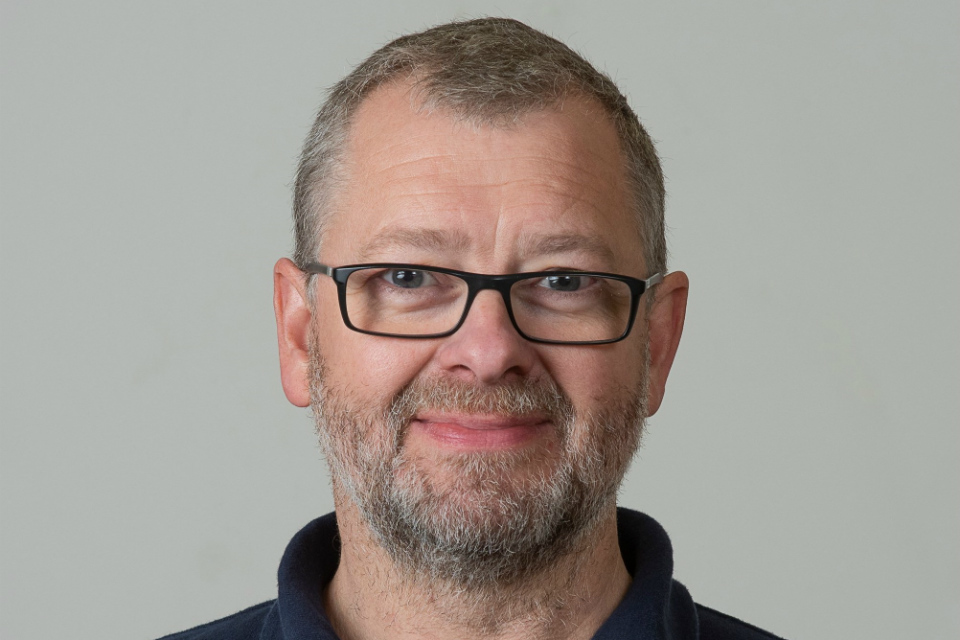
Mark Kirkbride
Mark Kirkbride has more than 30 years’ experience of underground construction techniques, geotechnical and rock mechanics and project delivery.
He has been the Chief Executive Officer of West Cumbria Mining since 2014, having previously worked in a wide range of senior roles in the mining, engineering, construction and tunnelling industries.
Mark has relevant experience in the design, planning and construction of complex underground projects, together with extensive stakeholder engagement, community relations and large-scale geotechnical exploration programmes.
Mark is a Fellow of the Institute of Materials, Minerals and Mining, a Chartered Engineer and holds a degree in mining engineering and a research masters in geomechanics (underground machine rock cutting). He was formerly a member of the active British Tunnelling Society committee.
Current term of office ends: November 2023
Stephen Tromans, Member
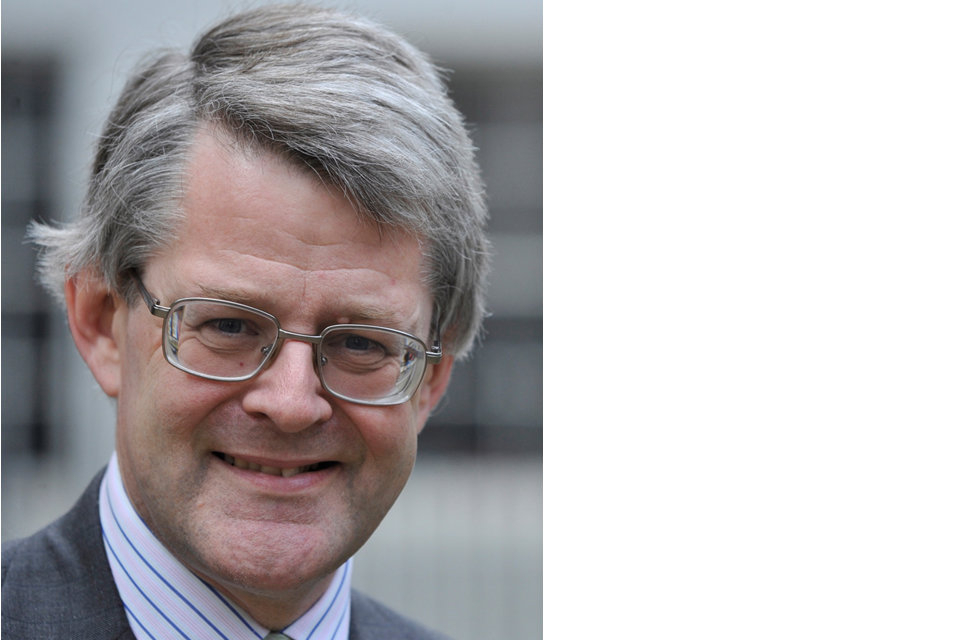
Stephen Tromans
Stephen Tromans KC is a barrister practising at 39 Essex Chambers, London.
He was Joint Head of Chambers from 2011 to 2015. He was worked as an academic at Cambridge (1981 to 1987) and as a solicitor (1987 to 1999). He became a barrister in 1999 and was appointed Queen’s Counsel in 2009.
His area of specialism is environmental, energy natural resources and planning law. He has extensive experience of advising companies and government and representing them in court and at public inquiries. He has a particular focus on nuclear law and is the author of the leading text, ‘Nuclear Law’. He is also the author of leading works on environmental impact assessment and contaminated land and has spoken and written widely on these topics.
He has been a member of the UK Environmental Law Association (UKELA) since its formation in 1986 and has been Chair and a Council member of UKELA. He is also a member of the International Nuclear Law Association (INLA) and a director of INLA UK. From 1994 to 2002 he was a Council Member of English Nature, the predecessor of Natural England and from 2010 to 2014 was the Chair of the Environmental Law Foundation (ELF).
Current term of office ends: November 2022
Geraldine Thomas, Member
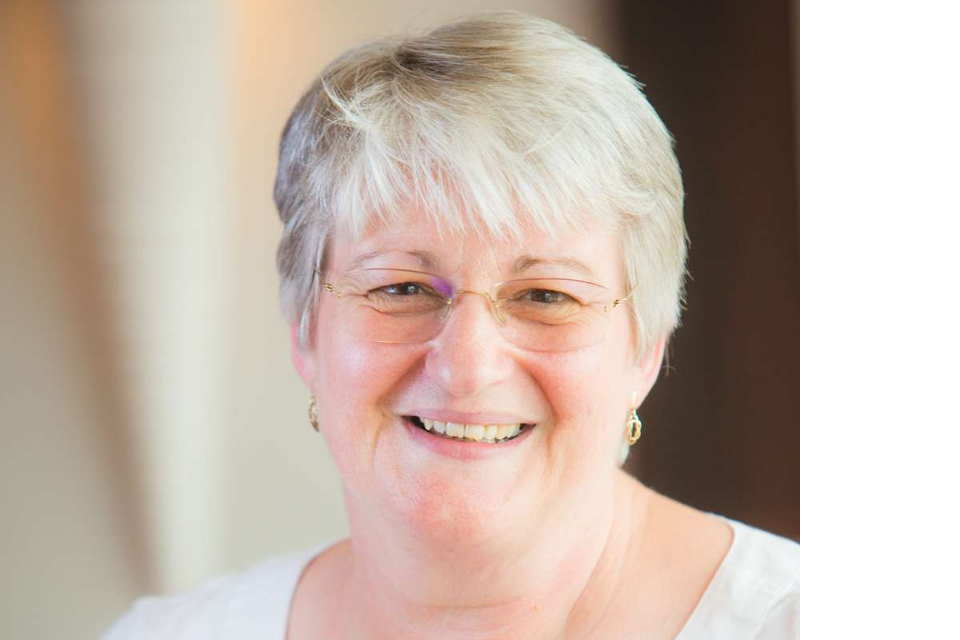
Gerry Thomas
Geraldine Thomas is currently a Professor of Molecular Pathology at Imperial College and Director of Chernobyl Tissue Bank.
In the past, she has been a Clinical Director of the West London Genome Medicine Centre and Professor of Molecular Oncology at the South Wales Cancer Institute.
Current term of office ends: November 2023
Clare Bond, Member
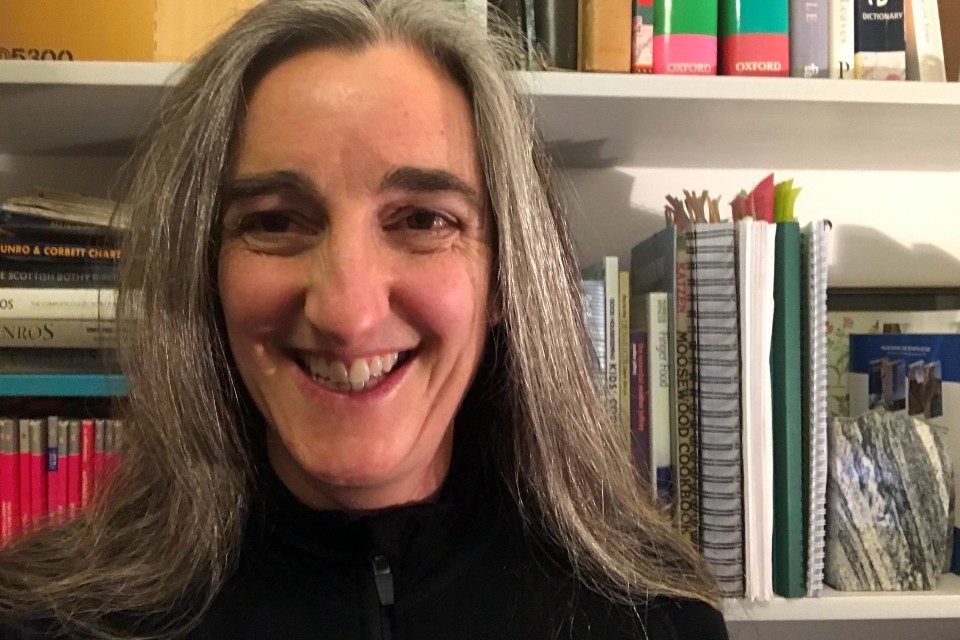
Clare Bond
Clare Bond is a Reader and Earth Scientist at the University of Aberdeen. She has academic, industry, policy and third sector experience spanning a 20+ year career.
Clare specialises in understanding biases and uncertainties in subsurface data interpretation; as well as rock deformation and fluid flow in the Earth’s crust. She applies her research to a range of subsurface challenges including CO2 and nuclear waste storage.
Clare is interested in the communication of science and engineered subsurface solutions, and the engagement of the public.
Current term of office ends: January 2025
Catherine MacKenzie, Member
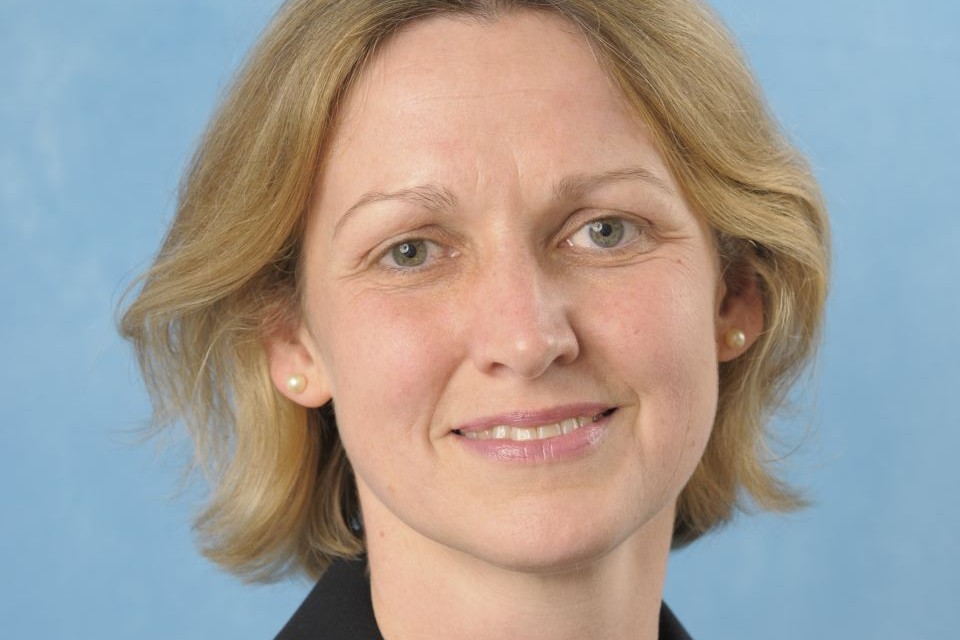
Catherine Mackenzie
Dr Catherine MacKenzie is a barrister and legal academic.
She is a member of the Faculty of Law of the University of Cambridge, Dean of Degrees of Green Templeton, University of Oxford, and Governing Master of the Bench of Inner Temple (Inn of Court).
Catherine has 25 years’ experience in nuclear law, energy law and international environmental law, including experience with the United Nations, the World Bank and Asian Development Bank, in which she advised on major international energy and infrastructure projects.
Current term of office ends: January 2025
Simon Webb, Member
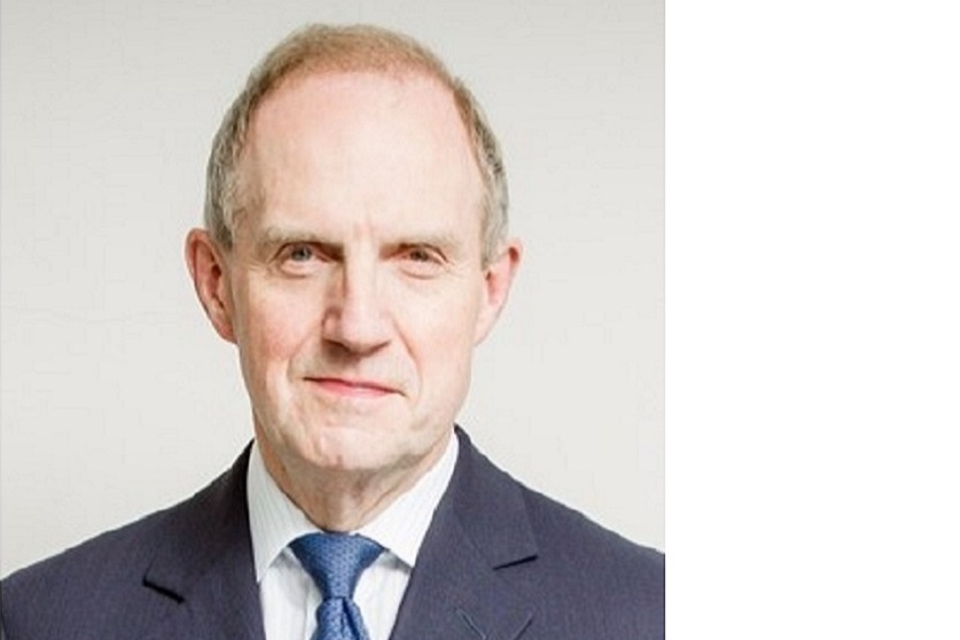
Simon Webb
Simon Webb CBE, FICE, specialises in major programmes and strategic change.
An Executive Director at Nichols Group, he has led their work on nuclear decommissioning and warships for the last 10 years, at sites in England, Scotland and Wales. Simon was a non-executive Director of the Major Projects Association from 2010 to 2021.
He is a member of the United Nations Economic Commission for Europe’s Group of Experts on Risk Management in Regulatory Systems.
Previously Simon was a Director-General in the Department of Transport and the Ministry of Defence, responsible for major projects and security policy.
Current term of office ends: January 2025
Annex C: CoRWM Subgroups 2021 to 2022
Subgroup 1: Working with Communities Implementation
Primary tasks:
- To scrutinise and advise on the integrated communication strategy of BEIS, NDA and NWS
- To scrutinise implementation of the Working with Communities policies in England and Wales.
- To act as a source of independent information to communities in the geological disposal facility siting process if approached, and to ensure that the work of the Committee (including key position papers) is visible and accessible to communities.
- To report to the main CoRWM Committee to enable the development of advice to ministers, NDA and NWS
- Scrutiny and provision of advice to NWS on public engagement and communication of the GDF safety case in collaboration with other CoRWM sub-groups. To scrutinise and advise on the integrated communication strategy of BEIS, NDA and NWS
Membership:
- Professor Penny Harvey (Subgroup Chair)
- Ray Kemp
- Geraldine Thomas
- Claire Corkhill
Subgroup 2: GDF Geology and Delivery
Primary tasks:
- Scrutiny of and advice to NWS on technical site evaluation criteria.
- Scrutiny and provision of advice to NWS on activities relating to the continued development of a GDF safety case.
- Scrutiny and provision of advice to NWS on GDF siting activities, including selection criteria, methods of investigation, and the timescale for carrying out site selection in different rock types.
- Provision of Subgroup 2 related advice to Working Group and Community Partnership stakeholders as required.
- Preparation of a paper reviewing CoRWM’s position on retrievability of waste packages from a GDF.
Membership:
- Mark Kirkbride (Subgroup Chair)
- Claire Corkhill
- Neil Hyatt (until Jan 2022)
- Clare Bond
Subgroup 3: Planning and Regulation
Primary tasks:
- Any legal and regulatory issues arising from the consultation by ONR on the approach to ‘bulk quantities’ of radioactive material for the purpose of nuclear site licensing.
- The need for legislative amendment to place nuclear site licensing of a GDF on a proper statutory footing. To produce a brief discussion paper.
- Legal and regulatory issues involved in the development of an ‘Inshore’ GDF beneath the seabed but accessed from land.
- Legal and regulatory issues involved in near surface disposal of intermediate level radioactive waste, either in England and Wales, or in Scotland.
- Legal, regulatory or policy issues arising from radioactive waste streams located in Scotland which would not be suitable for near surface disposal.
- Legal issues relevant to the Working with Communities process as it develops.
- Legal and regulatory issues involved in the development of fusion technology
Membership:
- Ray Kemp (Subgroup Chair)
- Stephen Tromans KC
- Derek Lacey
- Mark Kirkbride
Subgroup 4: Scottish Government Activities
Primary tasks:
- To scrutinise the Scottish Government’s activities in relation to the management of higher activity radioactive waste (HAW) in Scotland
- To report to the main CoRWM Committee to enable the development of advice to ministers, NDA and RWM
Membership:
- Clare Bond (Subgroup Chair)
- Derek Lacey
Subgroup 5: Welsh Government Activities
Primary tasks:
- To scrutinise the Welsh Government’s activities in relation to the delivery of the Implementing Geological Disposal policy in Wales
- To report to the main CoRWM Committee to enable the development of advice to ministers, NDA and RWM
Membership:
- Geraldine Thomas (Subgroup Chair)
Subgroup 6: Waste, Spent Fuel & Nuclear Materials Inventory Management
Primary tasks:
- Monitoring and providing advice on NDA Integrated Waste Management developments including boundary, difficult wastes in Scotland and strategic direction.
- To scrutinise and advise BEIS and NDA on the potential for near surface disposal of less hazardous intermediate level radioactive waste.
- Ongoing scrutiny of the end of the Magnox reprocessing programme, and of storage and potential disposal of spent fuel, uranics and plutonium.
- To advise on the implications of a UK programme of SMRs and AMRs for radioactive waste management.
- To advise on the implications of a UK fusion programme for radioactive waste management.
Membership:
- Derek Lacey (Subgroup Chair)
- Claire Corkhill
- Neil Hyatt (until Jan 2022)
- Simon Webb
Annex D: Meetings held during 2021 to 2022
| Date | Meeting | Attending Capacity |
|---|---|---|
| 13/04/2021 | CoRWM meeting with BEIS | CoRWM & BEIS |
| 14/04/2021 | CoRWM meeting with NDA | CoRWM & NDA |
| 14/04/2021 | CoRWM meeting with EA | CoRWM & EA |
| 16/04/2021 | CoRWM Subgroup 6 meeting | Subgroup 6 |
| 20/04/2021 | CoRWM Subgroup 1 meeting | Subgroup 1 |
| 23/04/2021 | CoRWM Away Day | CoRWM |
| 29/04/2021 | CoRWM fusion energy meeting | CoRWM |
| 04/05/2021 | CoRWM fusion decommissioning and waste management meeting | CoRWM |
| 05/05/2021 | CoRWM Subgroup 1 meeting with RWM | Subgroup 1 & RWM |
| 11/05/2021 | CoRWM Subgroup 5 Welsh Government Update | Subgroup 5 |
| 12/05/2021 | CoRWM Subgroup 2 meeting on radioactive waste retrievability | Subgroup 2 |
| 13/05/2021 | BEIS NGO Forum | CoRWM |
| 14/05/2021 | CoRWM meeting with NDA | CoRWM |
| 17/05/2021 | CoRWM meeting with RWM | CoRWM |
| 18/05/2021 | CoRWM Closed Plenary | CoRWM |
| 19/05/2021 | CoRWM Open Plenary | CoRWM |
| 19/05/2021 | CoRWM Subgroup 3 meeting with EA | Subgroup 3 & EA |
| 21/05/2021 | CoRWM meeting with BEIS | CoRWM |
| 01/06/2021 | CoRWM fusion response meeting | CoRWM |
| 03/06/2021 | CoRWM meeting with BEIS and devolved administrations | CoRWM, BEIS & DAs |
| 08/06/2021 | CoRWM Subgroup 1 meeting | Subgroup 1 |
| 14/06/2021 | CoRWM Subgroup 6 meeting | Subgroup 6 |
| 14/06/2021 | CoRWM meeting on inshore GDF | CoRWM |
| 17/06/2021 | CoRWM Subgroup 2 meeting with RWM | CoRWM & RWM |
| 17/06/2021 | CoRWM meeting with NDA | CoRWM & NDA |
| 21/06/2021 | CoRWM meeting with Scottish Government | CoRWM & Scottish Government |
| 22/06/2021 | CoRWM Subgroup 6 meeting | Subgroup 6 |
| 25/06/2021 | CoRWM Subgroup 6 meeting with NDA and RWM | Subgroup 6, NDA & RWM |
| 29/06/2021 | Scottish Stakeholder Site Group meeting | Subgroup 4 |
| 01/07/2021 | CoRWM meeting with NDA | CoRWM & NDA |
| 05/07/2021 | CoRWM meeting with NWS | CoRWM & NWS |
| 22/07/2021 | CoRWM Interim Meeting | CoRWM |
| 27/07/2021 | CoRWM meeting with NWS | CoRWM & NWS |
| 29/07/2021 | CoRWM meeting with BEIS | CoRWM & BEIS |
| 30/07/2021 | CoRWM Subgroup 2 meeting | Subgroup 2 |
| 02/08/2021 | CoRWM Subgroup 6 meeting with NWS | Subgroup 6 & NWS |
| 03/08/2021 | CoRWM meeting with NWS | CoRWM & NWS |
| 05/08/2021 | CoRWM meeting with NWS | CoRWM & NWS |
| 09/08/2021 | CoRWM Subgroup 1 meeting | Subgroup 1 |
| 12/08/2021 | CoRWM meeting with NDA | CoRWM & NDA |
| 31/08/2021 | CoRWM meeting on inshore GDF | CoRWM |
| 31/08/2021 | CoRWM Subgroup 5 Welsh Government update | Subgroup 5 |
| 07/09/2021 | CoRWM Subgroup 1 meeting with NWS | Subgroup 1 & NWS |
| 10/09/2021 | CoRWM Subgroup 6 meeting with Urenco and NDA | Subgroup 6, Urenco & NDA |
| 13/09/2021 | CoRWM Closed Plenary | CoRWM |
| 14/09/2021 | CoRWM Open Plenary | CoRWM |
| 13/10/2021 | CoRWM Subgroup 3 meeting with he Planning Inspectorate (PINS) | Subgroup 3 & PINS |
| 13/10/2021 | CoRWM meeting with GMS Abingdon Ltd | CoRWM & GMS |
| 14/10/2021 | CoRWM meeting with BEIS | CoRWM & BEIS |
| 18/10/2021 | CoRWM meeting with NWS and BEIS | CoRWM, NWS & BEIS |
| 28/10/2021 | CoRWM Interim Meeting | CoRWM |
| 29/10/2021 | CoRWM meeting with NDA | CoRWM & NDA |
| 08/11/2021 | CoRWM Subgroup 1 meeting with NWS | Subgroup 1 & NWS |
| 08/11/2021 | CoRWM Subgroup 1 meeting | Subgroup 1 |
| 09/11/2021 | Visit to Culham Centre for Fusion Energy | CoRWM |
| 11/11/2021 | CoRWM meeting with NDA | CoRWM & NDA |
| 12/11/2021 | CoRWM Subgroup 3 meeting | Subgroup 3 |
| 15/11/2021 | CoRWM Subgroup 3 meeting with ONR | Subgroup 3 & ONR |
| 19/11/2021 | CoRWM Subgroup 3 meeting with EA | Subgroup 3 & EA |
| 19/11/2021 | CoRWM Subgroup 3 with Nuleaf | Subgroup 3 & Nuleaf |
| 29/11/2021 | CoRWM Closed Plenary | CoRWM |
| 30/11/2021 | CoRWM Open Plenary | CoRWM |
| 24-26/11/2021 | Visit to Sellafield | CoRWM |
| 03/12/2021 | CoRWM Subgroup 6 meeting with NDA | Subgroup 6 & NDA |
| 13/12/2021 | CoRWM Subgroup 2 meeting with NWS | Subgroup 2 & NWS |
| 09/12/2021 | CoRWM Subgroup 3 meeting | Subgroup 3 |
| 15/12/2021 | CoRWM meeting on Sellafield visit | CoRWM |
| 13/01/2022 | CoRWM Subgroup 3 meeting | Subgroup 3 |
| 17/01/2022 | CoRWM Subgroup 6 meeting with NDA and NWS | Subgroup 6, NDA & NWS |
| 20/01/2022 | CoRWM Chair meeting with NWS CEO | CoRWM Chair & NWS CEO |
| 24/01/2022 | CoRWM meeting with BEIS | CoRWM & BEIS |
| 26/01/2022 | CoRWM Subgroup 3 meeting with BEIS | Subgroup 3 & BEIS |
| 01/02/2022 | Meeting between Subgroup 1 Chair and new members | Subgroup 1 & new members |
| 01/02/2022 | Meeting between Subgroup 2 Chair and new members | Subgroup 2 & new members |
| 02/02/2022 | Meeting between Subgroup 6 Chair and new members | Subgroup 6 & new members |
| 02/02/2022 | Policy and sponsorship induction to BEIS for new members | New CoRWM members & BEIS |
| 02/02/2022 | Meeting between Subgroup 5 Chair and new members | Subgroup 5 & new members |
| 03/02/2022 | CoRWM Subgroup 1 meeting | Subgroup 1 |
| 16/02/2022 | CoRWM meeting with Subgroup 3 | CoRWM |
| 17/02/2022 | NWS and CoRWM workshop | CoRWM & NWS |
| 17/02/2022 | Meeting between Subgroup 3 Chair and new members | Subgroup 3 & new members |
| 22/02/2022 | CoRWM Subgroup 1 meeting | Subgroup 1 |
| 23/02/2022 | Subgroup 1 meeting with NWS | Subgroup 1 & NWS |
| 25/02/2022 | CoRWM Subgroup 2 meeting with NWS | Subgroup 2 & NWS |
| 03/03/2022 | CoRWM Subgroup 3 meeting | Subgroup 3 |
| 10/03/2022 | CoRWM meeting on inshore GDF draft position | CoRWM |
| 14/03/2022 | New CoRWM member Induction | CoRWM & new CoRWM members |
| 14/03/2022 | Closed Plenary | CoRWM |
| 15/03/2022 | Open Plenary | CoRWM |
| 24/03/2022 | Meeting between CoRWM Chair and NWS Deputy CEO | CoRWM Chair & NWS Deputy CEO |
Annex E: List of acronyms
| Acronym | Description |
|---|---|
| BEIS | Department for Business, Energy & Industrial Strategy |
| CEO | Chief Executive Officer |
| CoRWM | Committee on Radioactive Waste Management |
| DAERA | Department of Agriculture, Environment and Rural Affairs |
| EA | Environment Agency (England’s Environmental Regulator) |
| GDF | Geological Disposal Facility |
| HAW | Higher Activity Waste |
| IAEA | International Atomic Energy Agency |
| NDA | Nuclear Decommissioning Authority |
| NGO | Non-Governmental Organisation |
| NSD | Near Surface Disposal |
| NWS | Nuclear Waste Services |
| ONR | Office for Nuclear Regulation (the regulator of safety, security and safeguards at nuclear facilities and transport of radioactive materials) |
| R&D | Research and Development |
| RWM | Radioactive Waste Management Limited, a wholly owned subsidiary of the NDA charged with delivering Geological Disposal, created on 1 April 2014 now part of Nuclear Waste Services |
| SG | Scottish Government |
| Uranics | A range of materials containing uranium arising from historic or current nuclear fuel cycle operations |
Feedback
We welcome feedback on the content, clarity and presentation of the annual report.
Please do not hesitate to contact us if you would like to provide feedback or if you would like further information about radioactive waste management issues.
CoRWM Secretariat
3rd Floor
1 Victoria Street
London
SW1H 0ET
United Kingdom
-
NWS is part of the Nuclear Decommissioning Authority (NDA) group and brings together the expertise of site operator LLW Repository Limited (LLWR), which manages the low level waste site in Cumbria and associated operations, Radioactive Waste Management Limited (RWM), which is responsible for delivering the Geological Disposal Facility (GDF) Programme, as well as the NDA’s Integrated Waste Management Programme (IWMP). ↩
-
Available on CoRWM webpage, Committee on Radioactive Waste Management framework document ↩
-
Available on CoRWM webpage: CoRWM meeting minutes, 24 November 2020; CoRWM meeting minutes, 15 September 2020 ↩

